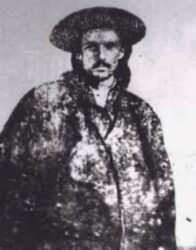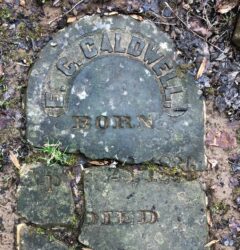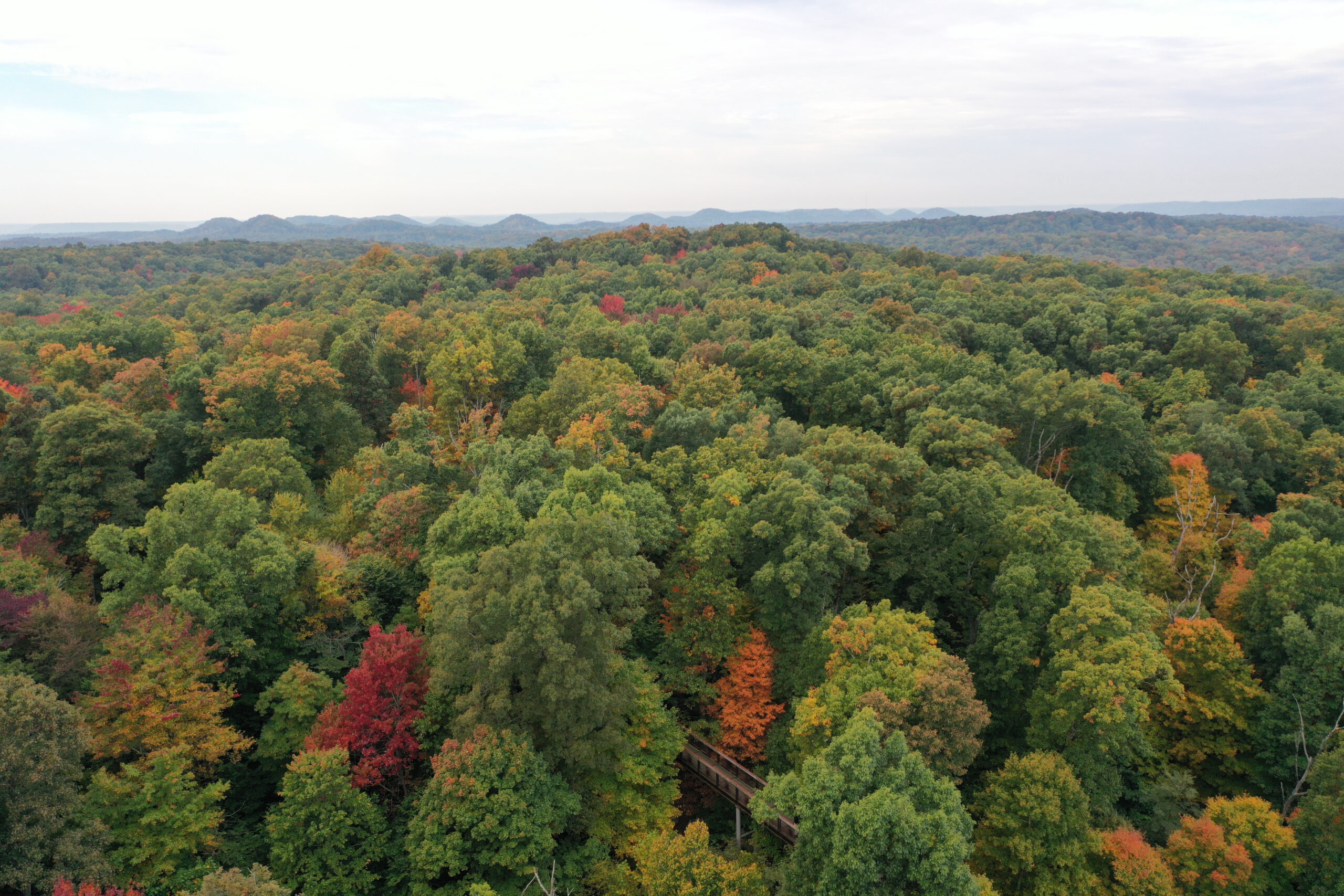By Bernheim

We come to Bernheim Forest to enjoy nature and tranquility, and to take a break from the often less pleasant side of the world. Invariably, we find that serenity here. However, there was at least one murder known to have taken place on the land that is now Bernheim Forest. One that took place in 1865, 63 years before Isaac Bernheim purchased the land to create this splendid place of peace.
The story began to take form even earlier, in 1861 and involves very different choices made by two young men.
Edward Curtis Caldwell was born on April 23, 1836 and grew up on his family’s farm in the forest near the present arboretum. The son of Benjamin Caldwell and Margaret Hoagland Caldwell, Edward’s time on the family farm appears to have been peaceful and uneventful. He never married and may have had no formal schooling.
Not far away, in Lebanon Junction, young Henry C. Magruder was also starting off his life. The son of Amy Magruder and born in 1843 or 1844 (it is likely he didn’t know his birthdate) he was about 7 years younger than Edward Caldwell. It appears that he was raised by his grandparents as he is listed as a member of their household on the 1850 census. His mother married in 1847 and had eleven more children with her new husband. Despite the age difference, Edward and Henry knew each other, although it is unclear how well.
When the Civil War began in 1861, both men went off to join the fighting. Henry Magruder was the first to leave his home and take up arms. He was determined to escape what he viewed as his disgraced life as the son of a single mother. He claimed that he spent some time trying to decide which side to join and made his decision to join the Confederacy due to the influence of other young men. In September 1861, he joined the Confederates at Camp Charity, located off of what is now US 62 between Bardstown and Bloomfield. He had an interesting and dishonorable time with the Confederacy.
His actions were detailed in his own words in The Life and Confession of Henry C. Magruder, his memoir as told to a Catholic priest, Father Brady. In that book he details his years of theft, wanton destruction of private property and multiple murders.
Somewhat less is known about the service of Edward Caldwell, as he was denied the opportunity to record his story. He joined the Union Army with Kentucky’s 15th Volunteer Infantry Regiment at Camp Hope near New Haven, KY in December 1861. He fought in a number of battles including Perryville, Chickamauga, Kennesaw Mountain, and Altoona. He served well and honorably. In the fall of 1864, he was a Sergeant stationed in Louisville. His war service was nearing its end as his unit was to be mustered out of service on January 14, 1865. In December, he received a telegram from his mother informing him that his father was gravely ill and near death. Sergeant Caldwell was given a furlough and was nearing his family home when Benjamin Caldwell passed away. Edward stayed on at the family home to comfort his relatives and make arrangements for his father’s burial.
In late 1864, Henry Magruder was with a group of about twenty guerrillas that was an offshoot of Quantrill’s Raiders. Magruder’s band caused great problems throughout the area around what is now
Bernheim. Their campaign of murder, destruction and theft terrorized the communities of Bardstown, Bloomfield, Pitts Point, New Haven, Lick Skillet, Fairfield, Samuels, Lebanon, Mount Washington, Salvisa, Mount Eden, Youngers Creek, and others.
On January 5, 1865 Henry Magruder heard that Sergeant Caldwell was at his family home. He left the rest of his gang at the Belmont Iron Furnace two miles from Bernheim’s present boundary. With three other members of his gang, and a man who was pressed into service as their guide, he made his way to the Caldwell home.

Once in the home, the gang looted the family of everything of value they could find. Over three hundred dollars in cash, a pistol, a penknife, and other items. They took Sergeant Caldwell outside to the family’s stable on the pretext of looking at a horse. Once there, he was shot and killed at close range. Nine days shy of what was to be his completion of his service and return to civilian life.
Edward Caldwell was 28.
The identity of the shooter is a matter of some dispute – in multiple ways. Henry Magruder claimed that he wasn’t the murderer despite witness reports to the contrary. Another possible shooter was a member of the gang named Marcellus Jerome Clarke. Clarke was widely believed to be the notorious guerrilla known as Sue Mundy. This was a fictitious name created by George Prentice, editor of the Louisville Journal. A number of other people have been identified or have claimed to be the inspiration for the infamous Sue Mundy. Indeed, Henry Magruder claimed in his confession that the name was properly his.
The Magruder/Clarke gang went on after the Caldwell murder to commit more crimes in Kentucky. They were finally captured in Meade County on March 12,1865 and returned for trial in Louisville. Both Magruder and Clarke were quickly tried, found guilty, and sentenced to death. Clarke was executed on March 15,1865. Magruder was given a reprieve to recover from injuries he sustained while avoiding arrest. While imprisoned, he dictated his confession to Father Brady. On October 20, having recovered sufficiently, he was taken to the gallows and met his fate. Among his last words was his observation that, “It’s hard, but maybe it’s fair”. One of the other members of their gang managed escape and settle in Alabama. The fourth was sentenced to five years of hard labor but was set free due to what was termed a technicality.
Edward C. Caldwell’s grave marker can be found near the Sun and Shade trail. Due to a nineteenth century version of a typo, his date of death on the stone is listed as 1875.
Visit Bernheim and stop by the Sun and Shade Trail to pay your respects to a fallen soldier. Come in peace.
–Ken Johnson, Volunteer Naturalist

